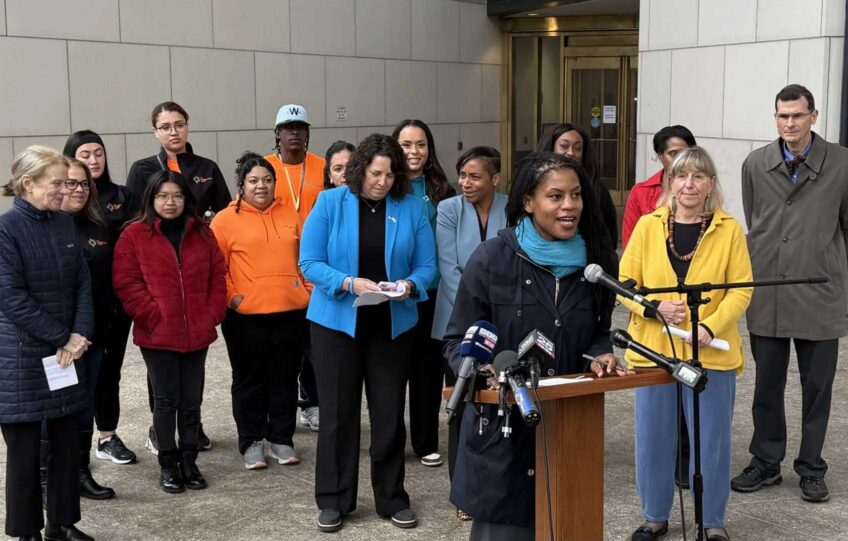Lawmakers unanimously approved a bill making sweeping changes to Massachusetts’ ethics laws last Thursday, saying reform was necessary to restore public trust in state government.
The Massachusetts House took up the ethics reform bill of House Speaker Robert DeLeo, who made it his first major legislative initiative of the session. The proposed changes come after the October arrest of state Sen. Dianne Wilkerson on bribery charges.
Some of the state’s ethics laws have been untouched since the 1960s.
“This will allow us to do our work each and every day and not worry that a few people who don’t play by the rules will ruin it for everybody,” said state Rep. Steven Walsh, D-Lynn, the House chair of the committee on regulatory oversight.
DeLeo’s bill includes doubling the penalty for violating lobbying laws to $10,000, increasing the penalty for bribery from $5,000 to $100,000 and 10 years in prison, establishing a statewide grand jury to investigate local corruption cases, giving subpoena power to the secretary of state and barring any gift from a lobbyist to a public official.
It would also give the attorney general the ability to call statewide grand juries to investigate local corruption and require lawmakers to file fundraising reports in off-election years.
State Rep. Peter Kocot, D-Northampton, chairman of the House Ethics Committee, told his colleagues that the bill would “get the people that make us look bad.”
The House also approved several amendments to the bill, which prohibit officials from paying ethics fines out of their campaign accounts and requires any income from illegal activities to be reported and subject to personal income tax.
The House also backed an amendment barring anyone from giving or promising anything of substantial value to any official in an attempt to influence any action of the state, county or local government.
In a statement released last Thursday, Gov. Deval Patrick said he appreciated the House’s passage of the bill but said it fell short on some important issues.
“I urge the Senate to include our proposals to strengthen the gratuities law and to permit recorded conversations in corruption investigations in its version of the ethics bill, and for the House to agree to these provisions in the final version of the bill,” said Patrick.
The governor appointed a task force on ethics reform last year following a federal bribery indictment against Wilkerson, a Boston Democrat, and filed his own ethics reform bill according to its recommendations.
DeLeo took over the speakership in January when former House Speaker Salvatore F. DiMasi resigned amid an ethics investigation.
DeLeo said his bill builds on proposals by the task force. But it is missing certain provisions of Patrick’s bill, including giving the state attorney general wiretapping authority in corruption investigations. The House bill instead establishes a special commission to study the proposal.
House leaders have also said the measure doesn’t include an explicit ban on gifts to lawmakers by people who may have business before the Legislature but aren’t registered lobbyists. But Pam Wilmot, director of Common Cause Massachusetts and a member of the governor’s ethics panel, says current law already bars anyone except family or friends from making a gift to a lawmaker of more than $50.
Wilkerson has acknowledged accepting as much as $70,000 from friends and supporters over the past decade without reporting the gifts on her campaign records or tax returns. She said she never accepted money in exchange for any official act as a senator.
Wilmot said the lack of a section prohibiting most gifts to public officials — which the governor’s bill has — is a disappointment, but not a fatal flaw in the House bill.
The ethics debate kicks off a spate of legislative action in the coming weeks, including transportation overhaul, the state budget and pension reform.
(Associated Press)






